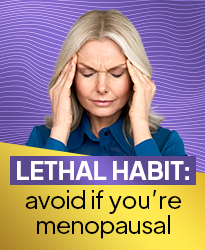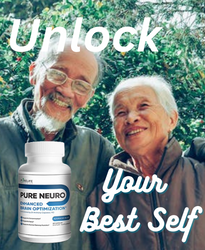Gratitude—a word that makes you think of Thanksgiving dinners, overly enthusiastic self-help books, and perhaps the sticky note someone left on your desk that read, “You’re amazing!” (Was that sarcastic? We’ll never know.) But let’s pause for a moment. Gratitude is more than just scribbling “thank you” on a card; it’s a transformative practice that can improve your mental and physical health. Yes, saying “thank you” might just keep the doctor away. Move over, apples.
So grab a journal, or just your imagination, and let’s embark on this laughably enlightening journey into the world of gratitude.
Gratitude and Your Brain: A Love Story
Your brain loves gratitude the way you love binge-watching your favorite show in pajamas. When you actively practice gratitude, your brain rewards you with a cascade of feel-good chemicals like dopamine and serotonin. It’s as if your brain is a puppy that perks up every time you acknowledge something good in your life: Oh, they’re thankful for their morning coffee? Here, have a hit of happiness!
In fact, MRI scans show that gratitude activates the brain’s reward system. It’s like hitting the mental jackpot, minus the awkward trip to Vegas. Regular gratitude practices can rewire your brain to focus on positivity rather than spiralling into existential dread every time you lose Wi-Fi.
Mental Health Perks: No Couch Needed (Unless It’s for Journaling)
Think of gratitude as mental floss—it cleans out the gunk of anxiety, depression, and negativity clogging up your thoughts. Studies have shown that grateful people experience lower levels of stress and higher levels of happiness. Why? Because gratitude shifts your perspective from “Why me?” to “Wow, me!”
Let’s put it in relatable terms: You can be frustrated about a flat tire, or you can be grateful it didn’t happen during your job interview. Sure, gratitude won’t magically inflate your tire, but it can stop you from launching into a tirade that scares nearby wildlife.
Pro tip: Start small. Try listing three things you’re grateful for each day. Yes, even if it’s just, “I didn’t burn my toast, my co-worker didn’t talk about their cat for once, and the coffee shop gave me an extra pump of caramel.”
Join Our Mailing List
Register now to get our hints and tips newsletter directly to your inbox
Physical Health: Gratitude, the Unsung Fitness Guru
Here’s a plot twist: gratitude doesn’t just make you emotionally lighter; it might also make you physically healthier. Research suggests that gratitude practices can lead to:
- Lower Blood Pressure: Imagine your gratitude journal as a natural beta-blocker. Just don’t try to swap it out for your meds without asking your doctor.
- Better Sleep: Grateful people sleep better. Why? Because instead of lying awake at 3 a.m. replaying that embarrassing thing you said in 2014, you’re focused on all the good things that happened that day.
- Stronger Immune System: Gratitude boosts immunity by reducing stress hormones and increasing optimism. Your immune system essentially says, “Oh, we’re in a good mood? Cool, let’s fight off that cold!”
And if you’re thinking, Does this mean I can skip the gym if I say thank you more often?—nice try, but no. Gratitude complements exercise; it doesn’t replace it. Still, a thankful heart beats stronger, literally.
Social Benefits: Friends and Family Might Actually Enjoy Your Company
Gratitude is social glue—it strengthens relationships, improves communication, and makes you less of a grump at family reunions. When you express gratitude, you’re not just improving your own health; you’re also spreading good vibes to others. It’s like throwing confetti but without the awkward cleanup.
Ever thanked your partner for doing the dishes or told your friend how much you appreciate their terrible jokes? Those small acts of acknowledgment can deepen bonds and even diffuse conflicts. Gratitude transforms “You never pick up your socks!” into “Thanks for putting them in the laundry this time!”
So, if you want fewer arguments and more love, start saying thanks. Who knew two syllables could work miracles?
How to Cultivate Gratitude Without Becoming Annoying
You might worry that practicing gratitude will turn you into one of those people—perpetually cheerful and slightly nauseating. Fear not. Gratitude can be genuine and grounded without making you insufferable at parties.
Here’s how:
- Keep a Gratitude Journal: Write down three to five things you’re thankful for each day. They can be big (“I got a promotion!”) or small (“The waiter gave me extra fries”). Bonus points if you write why you’re grateful—it deepens the impact.
- Gratitude Letters: Write a thank-you note to someone who has made a difference in your life. If writing isn’t your thing, send them a text or tell them in person. But fair warning: this might make them cry happy tears.
- Mindfulness Practices: During meditation or yoga, focus on things you appreciate about your life. If “being alive” feels too broad, start with something simple, like “My cat didn’t knock over my coffee today.”
- Gratitude Jar: Whenever something good happens, write it down and pop it in a jar. On tough days, pull out a note and remind yourself that life isn’t all bad. (Unless the jar is empty—then maybe it’s time to refill it.)
- Verbal Thanks: Make it a habit to thank people, even for mundane things like holding the door or passing the salt. Warning: This might confuse grumpy strangers, but it’s worth it.
Gratitude vs. Toxic Positivity: Know the Difference
Let’s get one thing straight: gratitude isn’t about ignoring life’s problems or pretending everything’s fine when it’s not. It’s okay to acknowledge challenges, vent about bad days, or cry over spilled oat milk. (We’ve all been there.) Gratitude is about finding the silver lining without gaslighting yourself into fake happiness.
For example:
- Toxic Positivity: “Everything happens for a reason, so losing my job is actually great!” (Insert eye-roll here.)
- Healthy Gratitude: “Losing my job sucks, but I’m thankful for the support of my friends while I figure things out.”
See the difference? Gratitude doesn’t erase hardships; it just helps you navigate them with a bit more grace—and maybe less caffeine.
The Gratitude Domino Effect
The best part about gratitude? It’s contagious. When you practice gratitude, you inspire others to do the same. It’s like a feel-good pyramid scheme, but legal and not annoying. Your positivity radiates outward, creating a ripple effect of kindness and connection.
So, whether you’re thanking the barista for spelling your name correctly (for once), or appreciating your neighbor for not leaf-blowing at 7 a.m., you’re making the world a little brighter. And who doesn’t want that?
Final Thoughts: Gratitude as a Superpower
Gratitude isn’t just a trendy buzzword; it’s a superpower hiding in plain sight. It boosts your mental health, strengthens your body, and improves your relationships—all without a prescription. Plus, it’s free. Take that, overpriced wellness trends.
So start small. Say thanks. Keep a journal. Appreciate the little things, like the fact that you made it through this blog post without falling asleep. And remember: life might not always be perfect, but there’s always something to be thankful for—even if it’s just extra fries.
Go forth and thank like you mean it. Your brain, body, and probably your friends will thank you in return.




